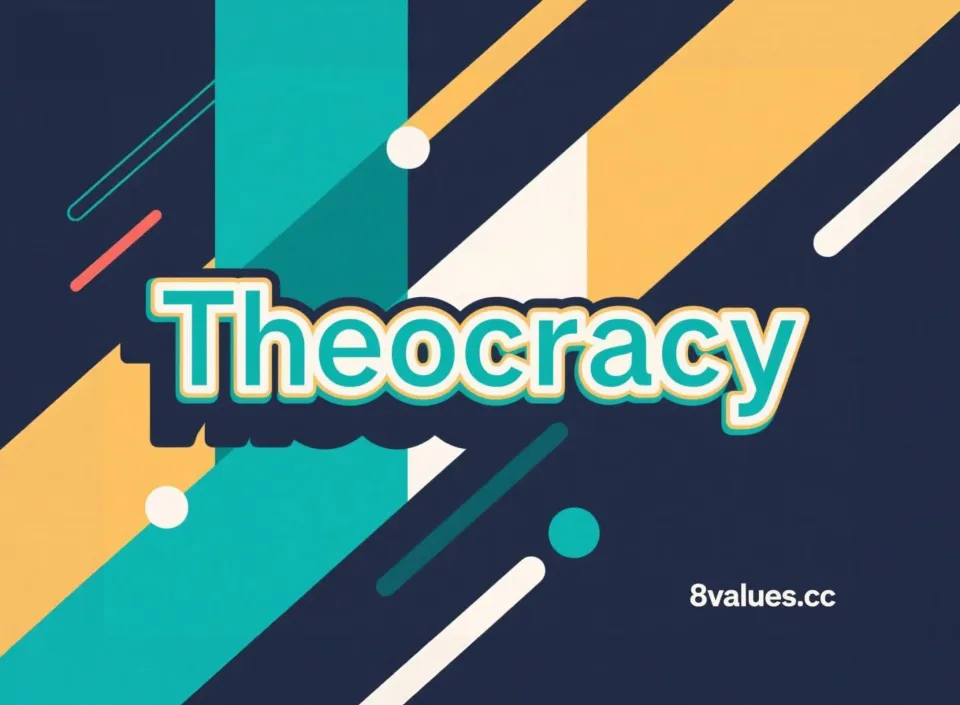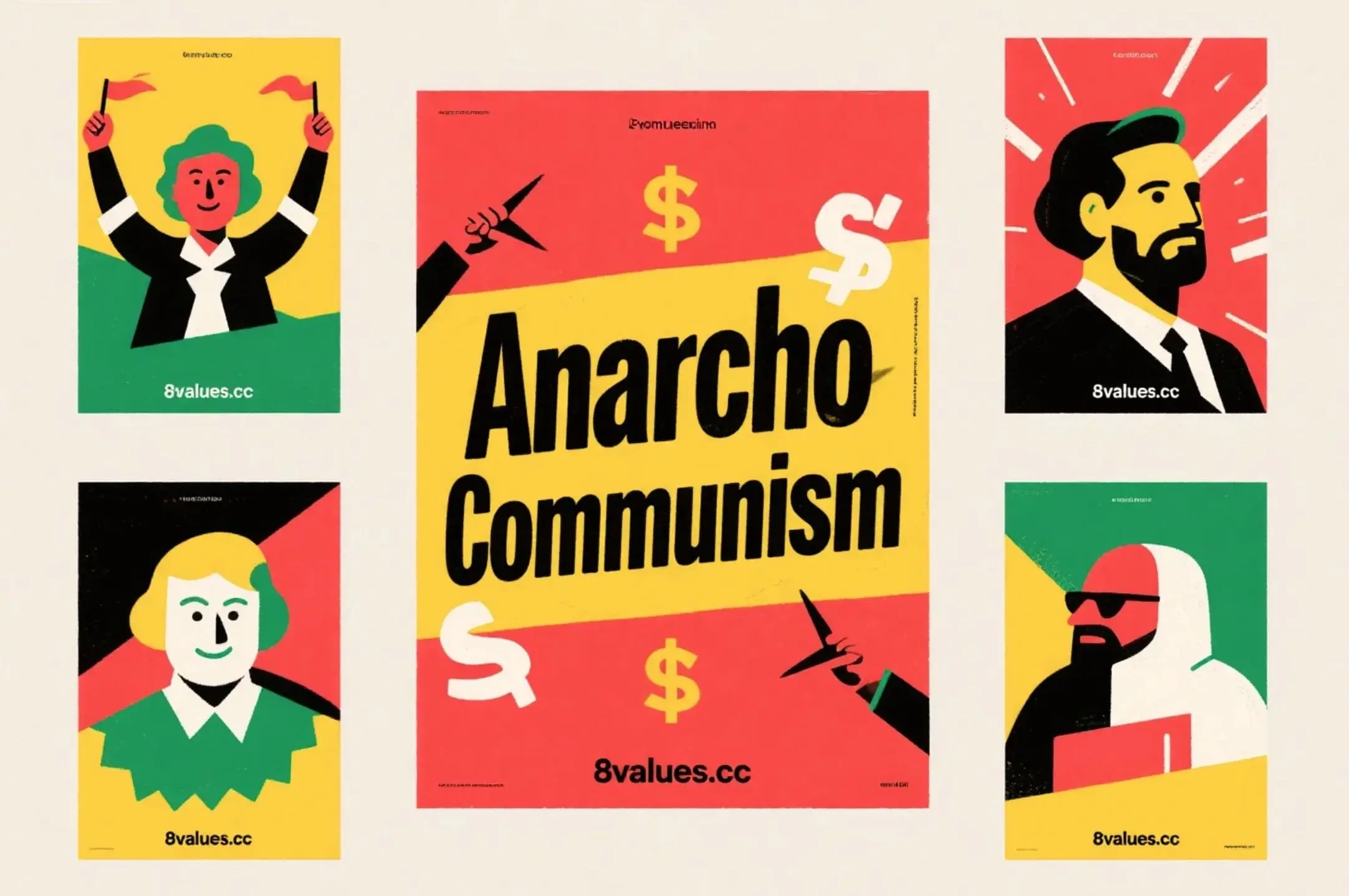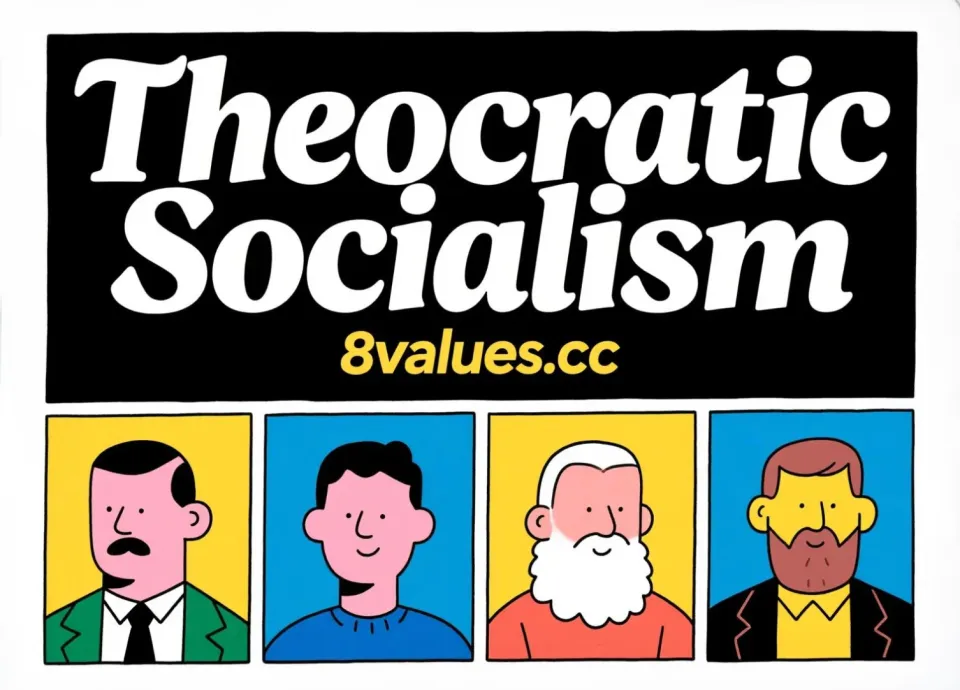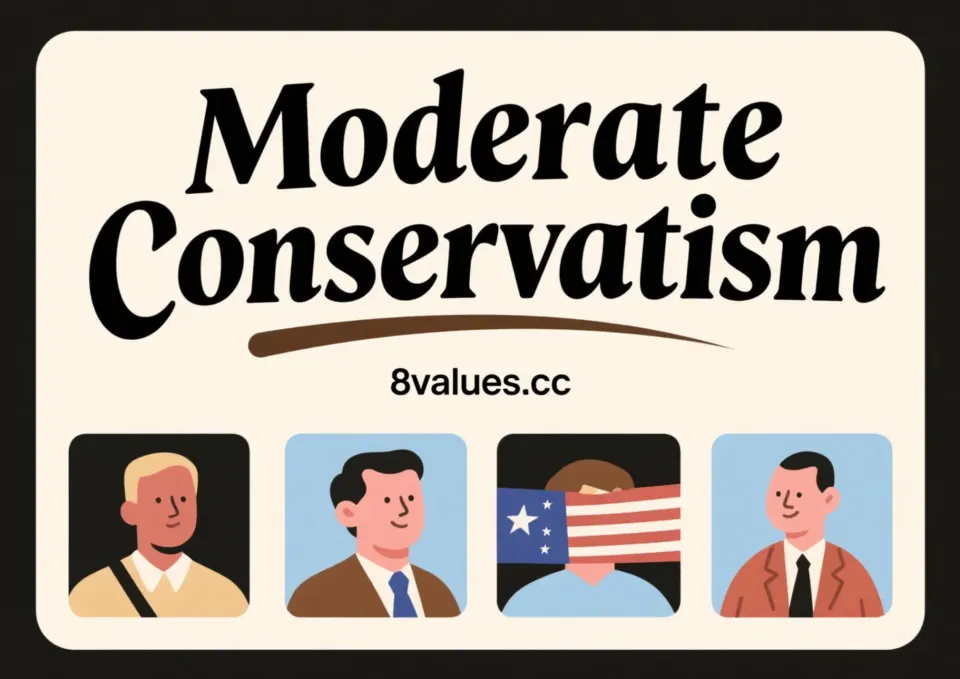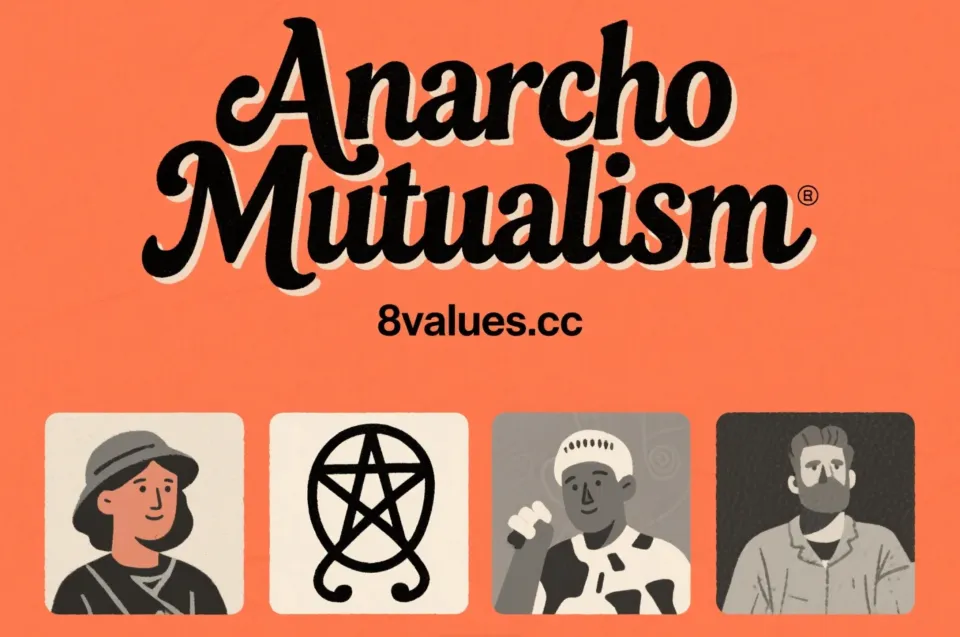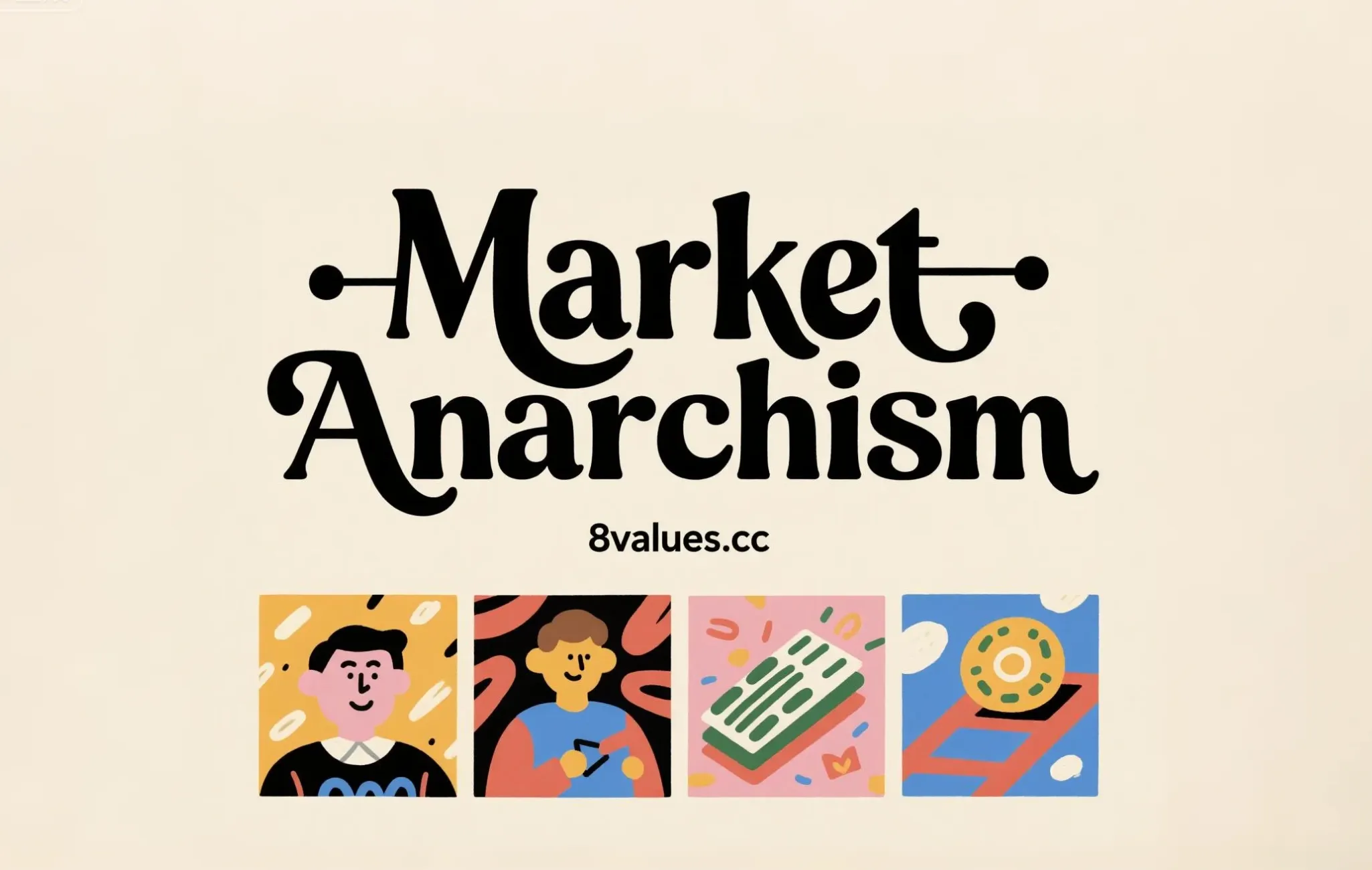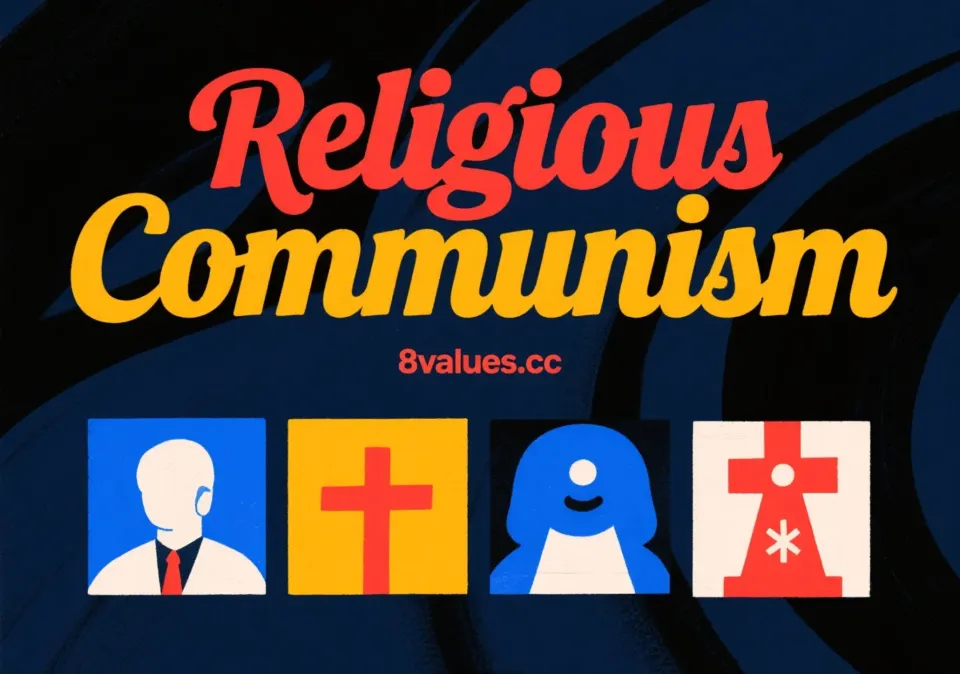An in-depth explanation of Theocracy: a political system dominated by divine authority
Theocracy is a special form of government whose core feature is that God or gods are regarded as the supreme governing authority, and state affairs are managed by officials or religious leaders who are believed to be guided by the divine. This article will explore in detail the definition of theocracy, its historical origins, contemporary examples, and its unique place on the political spectrum.
Theocracy is an ancient form of government with a simple but profound definition: "the rule of God." The word is derived from the ancient Greek "theokratia", which is composed of "theos" (meaning "god") and "krateo" (meaning "rule").
In a theocratic regime, state power is derived from religion, and the supreme governing authority is identified with gods or divine guidance. The day-to-day affairs of government are typically run by mortal agents—usually religious clerics or leaders—who are considered divinely chosen or divinely guided. Most of the existing theocratic countries have monotheism as their main belief. If you are interested in your own political values, you can try the 8Values political orientation test to understand where you stand on each dimension.
The definition and core characteristics of Theocracy
As a form of government, theocracy has a unique set of characteristics that differ from democracy or hereditary monarchy:
The sanctity of the source of power
The legitimacy of theocracy's rule comes directly from "the will of God" rather than citizen elections or secular constitutions. Rulers were often viewed as incarnations or agents of the gods, which resulted in the decisions of theocratic leaders being considered the will of the gods and therefore beyond question.
High integration of politics and religion
In a theocratic system, religious authority and political power are closely integrated , and there is usually no legal separation of church and state. The head of state often has the dual identities of secular ruler and religious leader. For example, in some cases, government agencies rule in the name of gods or religions.
In theocratic regimes, all power is often concentrated in a single institution, lacking checks and balances in the traditional sense of separation of powers.
Religious teachings as legal basis
In a true theocracy, the legal system is directly based on religious scriptures, doctrines, or precepts . Religious clergy or religious scholars not only manage educational affairs, but also bear the power of government affairs and legal interpretation and enforcement.
The limitations of political life
Because rulers serve their gods first and citizens second, theocracies tend to be restrictive and repressive .
- Lack of Democratic Space : There is no place for democratic procedures in true theocracy. Rulers gain power through “divine right” rather than through the consent of the ruled.
- Religious freedom is restricted : only state-mandated religious beliefs are generally allowed to be practiced publicly. Ethnic minorities or people with different beliefs often face assimilation or persecution.
- Social change is slow : Theocratic societies tend to be static and conservative, and religious moral norms will strongly constrain public life and policies, possibly hindering modernization and technological innovation (such as restrictions on the Internet and technology).
Despite these limitations, theocratic governments are often characterized by efficiency and unity in the eyes of their supporters because of strong social cohesion, relatively low crime rates, and little political conflict.
Historical origins and conceptual evolution
The concept of theocracy can be traced back to ancient civilizations:
origin of vocabulary
The term "theocracy" was first coined by Flavius Josephus, a Jewish priest and historian in the first century AD, to describe the unique form of government in ancient Israel . Josephus believed that human forms of government can usually be summarized as monarchy, oligarchy, and democracy, but the Jewish government was unique in that its sovereignty belonged to God, and God's word was law. Under the leadership of Moses, Israel is considered the only example of a true theocracy.
Before the time of the judges, the Israelites viewed the judges as representatives of God, but they later grew tired of being ruled by God's own orders and demanded a king like other idolatrous peoples. The prophet Samuel announced to them the shortcomings of kingship, but the Israelites persisted and eventually ended the theocratic rule.
Practices in Ancient Civilizations
- Ancient Egypt : Pharaohs were regarded as descendants or incarnations of gods (such as the sun god Ra) and possessed divinity.
- Mesopotamia : The Sumerian city-states were probably led by priest-kings (_ensi_), a priestly caste who established dominance by managing the temple economy.
- Ancient Persia : During the Achaemenid dynasty, Zoroastrianism was the state religion and the king ruled with his law "Asha".
Controversies and negative connotations of the Age of Enlightenment
Josephus's definition has been widely accepted throughout history. However, by the Age of Enlightenment , the term began to acquire a more generalized and negative connotation. Many political thinkers view theocracy as a form of tyranny.
In modern times, although theocracy has gradually declined, it is still reflected in different historical periods and regions. For example, the Republic of Geneva under John Calvin in the 16th century, called a theocratic republic by some scholars, emphasized democratic election of clergy officials and combined urban governance with Protestant theological theories.
These different political theories and governance structures are what political values tests (such as the 9Axes political ideology test ) try to distinguish and measure, aiming to help people understand the specific positions of different ideologies in dimensions such as authoritarianism , democracy , freedom , and conservatism .
Case study of contemporary theocracy
Although most of the world's countries have become secular, there are still a handful of countries that are identified or described as theocratic.
1. Vatican City
The Vatican City State, also known as the Holy See, is the only Christian theocracy in the world. Not only is it a sovereign and independent city-state, it is also the global center of the Catholic Church.
- Governing structure : The head of the Vatican is the Pope . The Pope is not only the leader of the global Catholic Church, but also the absolute monarch of the Vatican City State, possessing all legislative, executive and judicial powers.
- Electoral system : The Pope is elected by the College of Cardinals and serves a lifelong term. This regime has been described as a combination of an "electoral monarchy" and an "electoral theocracy".
- Legal basis : The Vatican's legal system is based on Canon Law .
The Holy See has gained a unique international legal status through its sovereign status in the Vatican City State, allowing it to participate in international affairs as a state and exert a major influence in global development and human rights conferences.
2. Islamic Republic of Iran (Iran)
Iran's government system has been described as a "theocratic republic" that mixes elements of theocracy and democracy . Iran's theocratic system is the product of the 1979 Islamic Revolution .
- Ideological basis : The Iranian government is based on the tutelage (_wilayat al-faqih_) theory of Shia Islamic jurists.
- Center of power : The Supreme Leader is the supreme head of state and the supreme commander of the armed forces, elected by an expert meeting composed of Islamic clerics. He must be an Islamic jurist (_faqih_) with a deep understanding of Islamic law. The current supreme leader is Ayatollah Ali Khamenei .
- Legal supervision : The Guardian Council (Guardian Council) is composed of 12 jurists and Sharia experts. They have the power to veto bills passed by parliament that are not in compliance with Islamic teachings, supervise elections, and review the qualifications of presidential and parliamentary candidates.
- Social life : All aspects of the Iranian government operate according to Sharia law. After the revolution, secular ideals were suppressed.
3. Islamic Emirate of Afghanistan (Afghanistan)
Afghanistan has experienced regime changes many times in history. Since the Taliban returned to power in 2021, Afghanistan has once again become a strict Islamic theocracy.
- How they rule : The Taliban regime enforces a harsh interpretation of Sharia law .
- Leadership : The government is led by Supreme Leader Haibatullah Akhunzada , who is not only a political leader but also a religious leader.
- Social control : The Taliban re-established the Ministry for the Propagation of Virtue and Prevention of Vice, which functions as a religious police and is responsible for suppressing all behavior that is not in line with Islamic teachings. The regime implemented harsh social policies, including restrictions on media freedom, a ban on demonstrations, severe restrictions on women, and a resumption of public punishments and executions.
4. Kingdom of Saudi Arabia (Saudi Arabia)
Saudi Arabia is a theocratic monarchy . It is the birthplace of Islam and is home to the two most important holy sites of Mecca and Medina.
- Basis of rule : The Al Saud dynasty has been in power for more than 300 years. Although the country does not have a formal constitution, it considers the Quran and Sunni Islamic law to be the basis for governing the country.
- Controversial points : Some people believe that Saudi Arabia is an Islamic theocracy, but there are also criticisms that since the actual power is in the hands of the hereditary royal family rather than religious scholars (ulama), it is more biased towards an authoritarian monarchy (Theo-monarchy) rather than a theocracy in the strict sense.
Controversy and Multiple Interpretations of Theocracy
Theocracy has caused widespread controversy in the fields of political philosophy and theology, especially in the context of the wave of secularization and pluralistic societies (Pluralism).
1. Conceptual distinction: theocracy, clergy and theocracy
In order to discuss this type of regime more precisely, scholars have proposed several related concepts:
- Theocracy : In its strictest definition, it refers to the rule of gods, directly or through their agents, whose language is law.
- Hierocracy : refers specifically to a management organization composed of a hierarchical structure of religious officials or clergy. It is a special type of theocracy.
- Ecclesiocracy : refers to religious leaders playing a leading role in the country, but they do not necessarily claim to be instruments of divine revelation.
- Church-State/Caesaropapism : refers to the intertwining of religious and political power, and the church has a significant influence on the government. Sometimes it refers specifically to a secular ruler (such as the emperor) who is also the supreme authority of the church (such as the Byzantine Empire).
2. The conflict between theocracy and liberalism
Many people believe that theocracy is incompatible with liberal democracy and pluralism.
- Inhibition of individual freedoms : Theocracy can lead to severe restrictions on individual rights, such as freedom of speech, freedom of assembly, and freedom of religion.
- Persecution of minority groups : Theocratic regimes often suppress non-mainstream faiths or ethnic minorities, raising concerns about persecution, hate crimes, and ethnic cleansing.
- Violence and Tyranny : Historical and contemporary examples (such as Iran and Afghanistan) show that theocracies can degenerate into tyranny, using the name of God to justify corruption and oppression.
3. Theological reflection on the theocratic worldview
Some theological views, especially those of Protestantism and Methodism, are critical of the establishment of a secular theocratic state.
- The non-political entity of the church : Some Christian scholars believe that since the end of Israel as a political entity, God's work of expanding the kingdom is no longer done through a political state, but through the "kingdom of God" scattered groups of believers on earth - the church . The kingdom of Christ is not of this world, and the church should not use “the sword to force faith.”
- Opposition to forced belief : God requires people to freely offer obedience, rather than being forced to accept laws based on religion. Attempting to establish a theocracy on earth through political power not only oppresses the people, it is also blasphemous to God because it attempts to exploit God's authority and glory without God.
These profound philosophical and theological discussions help us understand the multiple roles of ideology in personal and social governance. Whether you are focusing on economic equality in the LeftValues left-wing political value test , or exploring traditional order in the RightValues right-wing political spectrum test , theocracy provides an extreme contrasting perspective that highlights the impact of political structure on individual freedoms and social ethics.
in conclusion
Theocracy, as a political system, is defined as placing the authority of God above the power of the state. Whether it is ancient Israel in history, the Papal States in the Middle Ages, or the Vatican, Iran, and Afghanistan in modern times, theocratic regimes have profoundly demonstrated the unique social structure and legal system resulting from the combination of religious beliefs and national governance.
In an increasingly diversified modern world, the practice of theocracy faces complex issues such as how to balance religious traditions and universal human rights, and how to respond to the challenges of globalization. Studying the operating mechanism and historical lessons of theocracy can help us gain a deeper understanding of the diversity and conflicts in the political world revealed by tests of different political values, ideological tendencies .
